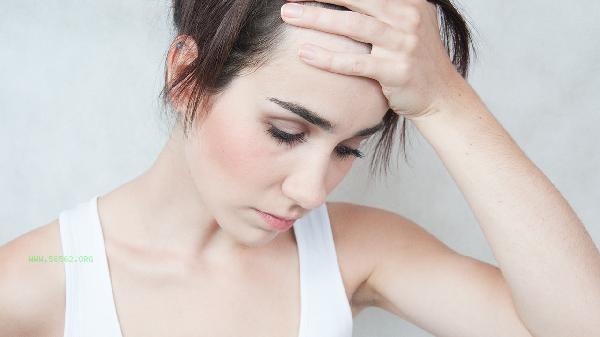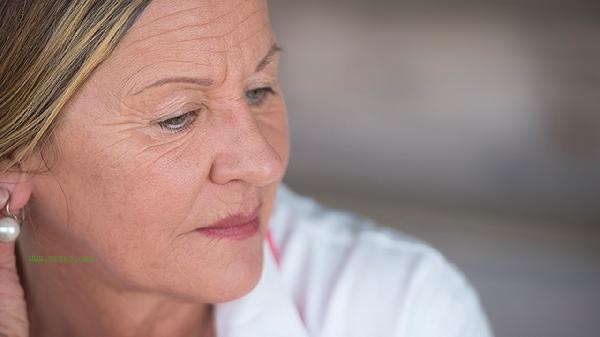Abdominal distension in menopausal women may be caused by hormonal fluctuations, gastrointestinal dysfunction, improper diet, mental stress, chronic diseases, and other reasons. It can be alleviated through adjusting diet, regular exercise, medication intervention, and other methods.

1. Hormonal fluctuations
The decrease in estrogen levels during menopause can affect gastrointestinal motility, leading to bloating. After ovarian dysfunction, a decrease in progesterone secretion may lead to intestinal edema and bloating. This condition is usually accompanied by typical menopausal symptoms such as hot flashes and insomnia, which can be alleviated by supplementing with phytoestrogens or following medical advice for hormone replacement therapy.
2. Gastrointestinal dysfunction
Autonomic dysfunction is a common problem during menopause, which may lead to functional dyspepsia. Insufficient gastrointestinal motility can cause food retention and produce gas, manifested as significant postprandial bloating. It is recommended to eat small meals and avoid gas producing foods such as beans and onions. If necessary, follow the doctor's advice to use gastrointestinal motility promoting drugs such as domperidone tablets and mosapride citrate tablets.
3. Improper diet
A high-fat and high sugar diet can increase digestive burden, and excessive intake of carbonated beverages or refined carbohydrates can lead to increased intestinal gas production. Some women experience lactose intolerance due to metabolic changes, and bloating worsens after drinking milk. Suggest increasing dietary fiber intake, choosing fermented dairy products instead of fresh milk, and adding natural ingredients such as fennel and tangerine peel when cooking.

4. Mental stress
Anxiety and depression affect digestive function through the brain gut axis, and elevated levels of stress hormones can inhibit gastric acid secretion. Long term tension may lead to irritable bowel syndrome, resulting in bloating and changes in bowel habits. Relaxation training such as mindfulness meditation and abdominal breathing can help improve symptoms. In serious cases, you can take traditional Chinese patent medicines and simple preparations such as Shuganjieyu capsule according to the doctor's advice.
5. Chronic diseases
Basic diseases such as hypothyroidism and chronic gastritis may worsen during menopause. Insufficient thyroid hormone can slow down intestinal peristalsis, and Helicobacter pylori infection can easily cause bloating. It is recommended to improve thyroid function, gastroscopy and other examinations. After diagnosis, medication such as levothyroxine sodium tablets and colloidal pectin bismuth capsules can be used according to medical advice to treat the primary disease. Menopausal women should pay attention to maintaining moderate exercise in their daily lives, such as brisk walking, yoga, and other aerobic activities that can promote gastrointestinal peristalsis. Recommended foods for strengthening the spleen include yam and millet, and avoid raw, cold, and stimulating foods. Recording the timing of bloating and its association with diet can help identify the underlying causes. If the symptoms continue to worsen or are accompanied by warning symptoms such as weight loss and rectal bleeding, it is necessary to seek medical attention promptly to rule out organic diseases. Establishing a regular schedule and maintaining a happy mood, seeking psychological support when necessary, these comprehensive intervention measures can effectively improve bloating problems.





Comments (0)
Leave a Comment
No comments yet
Be the first to share your thoughts!